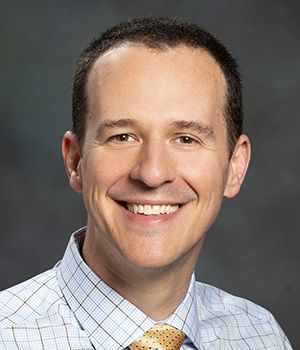
#MATTHEW FINK TRIAL#
What we have found to be effective is Therapeutic Hypothermia, which is cooling the brain at the time that a stroke or any other damage occurs.Ī cooling trial is being developed to test out that treatment on patients who have had acute strokes, and I believe we’re going to discover this is quite effective and may change the way we treat patients who come in with an acute stroke. Unfortunately, no drug has been found effective in accomplishing that, in spite of testing hundreds of compounds. One of the most important areas has been to develop treatments that can reduce the damage to the brain at the time a stroke occurs. We’re involved in a number of trials that are sponsored by the National Institutes of Health as well as private industry pharmaceutical companies that are developing new drugs. Will you talk a bit about clinical trials for stroke? Part of that is going to be changes in diet and probably taking medication.Īfter that, there is a list of what we refer to as risk factors that are things one can eliminate to reduce stroke risk.

If one’s doctor says they have high blood pressure, they need to take it seriously to lower it. The single most important problem to deal with is high blood pressure. The good news is that the same recommendations we make for preventing heart attacks will also for the most part prevent a stroke. We are in an era where we can prevent 80 percent of the strokes that we are now treating, and everyone would agree that preventing a stroke is far better than trying to treat it. The greatest concern is if they can be with their families. In those patients who have had a severe stroke and are disabled, the most common question is if they will be able to go home, because the greatest fear that people have is they’re going to end up in a nursing home, even if they aren’t able to go back to work, which often will happen. My patients are concerned with preventing a second stroke or not having one. Weill Cornell Medicine maintains major affiliations with Memorial Sloan-Kettering Cancer Center, The Rockefeller University, the Hospital for Special Surgery, and Houston Methodist Hospital.įor those patients who have suffered a stroke, what is their biggest concern? Weill Cornell Medicine faculty provide comprehensive patient care at NewYork-Presbyterian/Weill Cornell Medical Center, NewYork-Presbyterian/Lower Manhattan Hospital, and NewYork-Presbyterian/Queens. medical degree and to programs in Tanzania, Haiti, Brazil, Austria, and Turkey. Located in the heart of the Upper East Side’s scientific corridor, Weill Cornell Medicine’s powerful network of collaborators extends to its parent university Cornell University to Qatar, where an international campus offers a U.S. The doctors and scientists of Weill Cornell Medicine – faculty from Weill Cornell Medical College, Weill Cornell Graduate School of Medical Sciences, and Weill Cornell Physician Organization – are engaged in world-class clinical care and cutting-edge research that connect patients to the latest treatment innovations and prevention strategies. Weill Cornell Medicine ( ) is committed to excellence in patient care, scientific discovery, and the education of future physicians in New York City and around the world.

He is board certified in internal medicine, neurology, critical care medicine, vascular neurology, and neurocritical care. Fink was a founding member and chairman of the Critical Care Section of the American Academy of Neurology and the Research Section for Neurocritical Care of the World Federation of Neurology. He was Professor of Clinical Neurology and Clinical Medicine at the Albert Einstein College of Medicine of Yeshiva University. Fink served as President and Chief Executive Officer of Beth Israel Medical Center in New York, as well as Chairman of the Barbara and Alan Mirken Department of Neurology, Director of the Comprehensive Stroke Center, and Co-Director of the Hyman-Newman Institute for Neurology and Neurosurgery. Prior to joining the faculty of Cornell, Dr. Subsequently, he joined the faculty of Columbia University and became the founding director of the Neurology-Neurosurgery Intensive Care Unit at New York Presbyterian Hospital and was appointed Associate Professor of Clinical Neurology and Neurosurgery while at Columbia. He trained in neurology at the Neurological Institute of New York/Columbia Presbyterian Medical Center, and served as chief resident under Dr. Fink attended college at the University of Pennsylvania, medical school at the University of Pittsburgh, and served as resident and chief resident in internal medicine at the Boston City Hospital. Matthew Fink is Chief of the Division of Stroke and Critical Care Neurology at NewYork-Presbyterian Hospital/Weill Cornell Medical Center and President of the Medical Board.


 0 kommentar(er)
0 kommentar(er)
